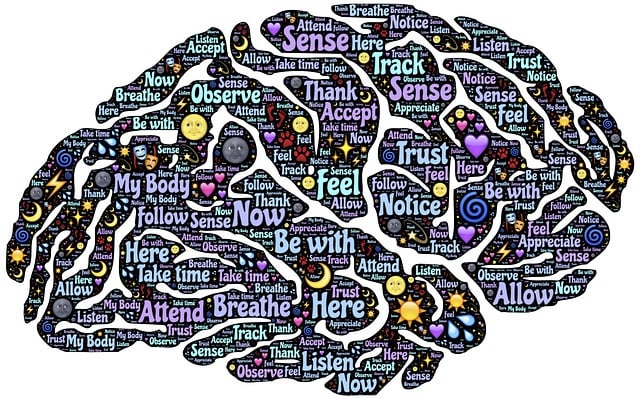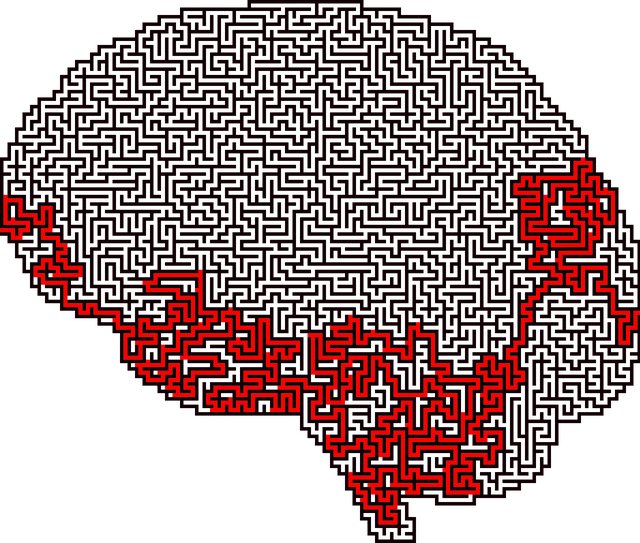Lakewood Eating Disorders Therapy emphasizes building resilience through Compassion Cultivation Practices, Emotional Regulation, and Emotional Intelligence, key components of their Recovery Capital Model (RFM). This holistic approach recognizes the interconnectedness of eating disorders with mental health, integrating tailored exercises, cultural sensitivity, and safety-focused risk assessments. Success is measured using both quantitative (questionnaires, therapist feedback) and qualitative methods, ensuring that lasting resilience, not just short-term gains, is fostered in individuals seeking recovery.
“Resilience is a key factor in recovering from eating disorders, enabling individuals to navigate challenges and setbacks effectively. This article explores the powerful combination of the Recovery Capital Model (RFM) and resilience-building exercises as tools to enhance recovery rates. We delve into the practical implementation at Lakewood Eating Disorders Therapy, where these strategies are fostering successful outcomes. By examining both the theoretical foundation and real-world application, we offer insights into improving therapeutic approaches for eating disorder treatment.”
- Understanding Resilience and its Impact on Recovery from Eating Disorders
- The Role of RFM (Recovery Capital Model) in Resilience Building
- Implementing Resilience Exercises in a Therapeutic Setting at Lakewood Eating Disorders Therapy
- Measuring Success: Evaluating the Effectiveness of RFM and Resilience Training Programs
Understanding Resilience and its Impact on Recovery from Eating Disorders

Resilience is a vital component in the journey towards recovery from eating disorders. It refers to an individual’s ability to adapt and bounce back from challenging situations, fostering a sense of strength and perseverance. For individuals struggling with eating disorders, such as those seeking Lakewood Eating Disorders Therapy, building resilience can significantly impact their path to healing.
Compassion Cultivation Practices, Emotional Regulation, and Emotional Intelligence are essential tools within the framework of resilience-building exercises. These practices empower individuals to cultivate self-compassion, manage intense emotions, and develop a deeper understanding of their feelings. By enhancing emotional intelligence, individuals learn to recognize and respond adaptively to triggers, ultimately reducing the impact of eating disordered behaviors. This process enables them to navigate life’s ups and downs with greater ease, fostering a sense of resilience that supports long-term recovery.
The Role of RFM (Recovery Capital Model) in Resilience Building

The Recovery Capital Model (RFM) serves as a powerful framework for understanding and enhancing resilience, particularly relevant in addressing issues like eating disorders, depression, and burnout, often treated at Lakewood Eating Disorders Therapy. This model posits that individuals have a capital—a set of resources—that supports their recovery from adverse experiences and promotes overall well-being. These resources include physical health, social connections, access to meaningful activities, and psychological resilience. By identifying and strengthening these aspects, RFM empowers individuals to build a robust foundation for navigating challenges.
Implementing RFM involves strategic interventions that foster Depression Prevention, Empathy Building Strategies, and Burnout Prevention. For instance, encouraging healthy eating habits and regular physical activity boosts physical capital. Establishing or strengthening social networks provides a vital support system during difficult times. Moreover, engaging in activities that bring joy and purpose contributes to psychological capital, enabling individuals to maintain a positive outlook even in the face of adversity.
Implementing Resilience Exercises in a Therapeutic Setting at Lakewood Eating Disorders Therapy

At Lakewood Eating Disorders Therapy, we recognize that building resilience is a cornerstone of effective treatment for individuals struggling with eating disorders. Implementing resilience exercises tailored to their unique needs fosters emotional healing processes and empowers clients to navigate challenges with greater adaptability. Our therapeutic approach integrates these exercises into individual and group sessions, creating a safe space for exploration and growth.
Through robust Healthcare Provider Cultural Competency Training, our team ensures that each resilience-building activity is culturally sensitive and inclusive. This comprehensive training underscores our commitment to addressing the complex interplay of eating disorders with other aspects of an individual’s mental health. Moreover, we conduct thorough risk assessments for all clients, enabling us to modify exercises as needed while prioritizing their safety throughout the therapeutic journey.
Measuring Success: Evaluating the Effectiveness of RFM and Resilience Training Programs

Measuring success is a vital aspect of evaluating the effectiveness of RFM (Recovery-Focused Methodology) and resilience training programs, especially in the context of Lakewood Eating Disorders Therapy. These interventions aim to empower individuals to navigate life’s challenges with enhanced coping mechanisms and improved mental fortitude. The key to assessing their impact lies in well-defined metrics that capture both short-term gains and long-term sustainability.
Effective evaluation strategies for RFM and resilience training might include self-reported questionnaires, where participants reflect on their personal growth, stress management skills, and overall resilience. Additionally, qualitative feedback from therapists and support staff can offer insights into the program’s influence on clients’ mental health and well-being. Public Awareness Campaigns Development and Burnout Prevention initiatives can also be gauged by tracking participant engagement and the subsequent reduction in risk factors identified through Risk Management Planning for Mental Health Professionals. These comprehensive approaches ensure that success is measured not just in terms of immediate results but also in fostering lasting resilience among individuals seeking therapy, such as those supported by Lakewood Eating Disorders Therapy.
The implementation of the Recovery Capital Model (RFM) and resilience-building exercises at Lakewood Eating Disorders Therapy has shown promising results in enhancing recovery outcomes. By integrating these strategies, therapists can equip individuals with powerful tools to navigate challenges and promote long-term healing. RFM’s focus on resources, strengths, and motivation, coupled with structured resilience training, empowers clients to foster a sense of agency and build a resilient mindset. As evidenced by successful program evaluations, Lakewood Eating Disorders Therapy is revolutionizing recovery, demonstrating that investing in resilience is key to helping individuals overcome eating disorders and thrive.














